Introduction
The use of cell phones in prisons is one of the most polarizing topics in criminal justice today. Critics argue that cell phones pose security risks, enabling scams and criminal activity. But this perspective tells only part of the story. For many incarcerated individuals, cell phones are lifelines—tools that save lives, expose systemic corruption, and allow inmates to maintain vital connections with the outside world.
This article challenges the conventional narrative surrounding cell phones in prisons and reveals the deeper issues at play. We’ll explore how the Georgia Department of Corrections (GDC) uses propaganda to frame cell phones as a threat, not to protect public safety, but to secure massive funding increases while hiding its failures. We’ll examine how prohibition policies fuel corruption and violence, creating lucrative black markets for contraband that benefit the very people tasked with maintaining order.
We’ll also highlight the critical, often overlooked benefits of cell phone access. From enabling inmates to report abuse and medical emergencies to providing access to legal resources and education, cell phones can play a transformative role in rehabilitation and accountability.
The reality is clear: Cell phones in prisons, when viewed through the lens of justice and humanity, are not a threat. They are a necessary tool for reform in a broken system.
How the GDC Uses Propaganda to Control the Narrative
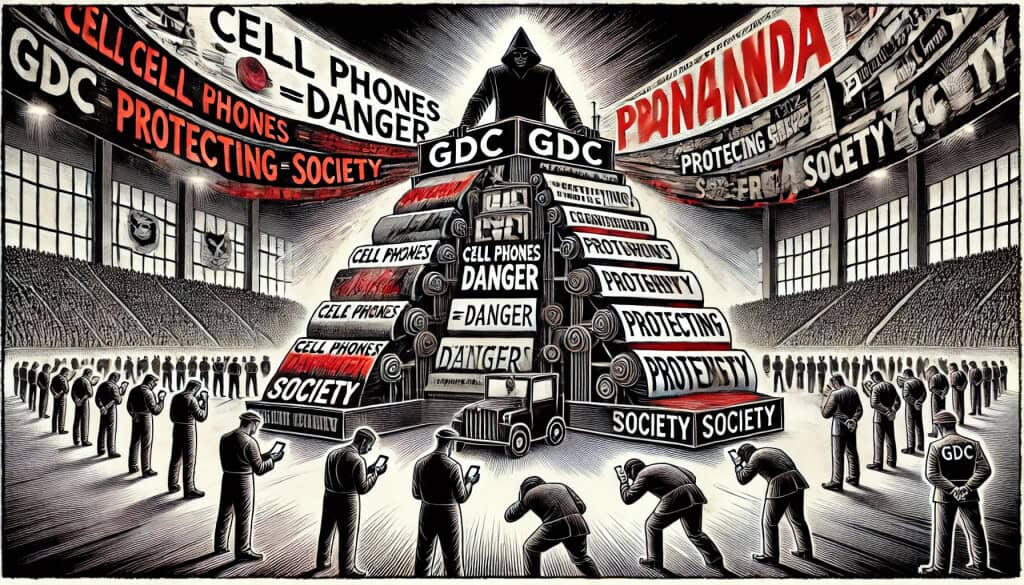
The Georgia Department of Corrections (GDC) has worked diligently to shape public perception of cell phones in prisons. By focusing on isolated incidents of misuse—such as scams or alleged violence facilitated by cell phones—the GDC frames these devices as security threats. This narrative, frequently pushed through media outlets, diverts attention from the GDC’s systemic failures, such as understaffing, unchecked violence, and widespread corruption.
The timing of this campaign is telling. The prohibition of cell phones in 2008 coincided with a significant decline in the conditions within Georgia prisons. Reports of overcrowding, medical neglect, and abuse began surfacing shortly after inmates used cell phones to document and share their experiences with journalists and advocacy groups. The crackdown intensified when the Department of Justice (DOJ) launched its investigation into Georgia’s prisons, bringing national attention to these failings. By criminalizing cell phones and vilifying their use, the GDC sought to silence whistleblowers and suppress evidence of its inadequacies.
The Financial Motive Behind the Narrative

Behind the propaganda lies a financial agenda. For 2025, Georgia Corrections Commissioner Tyrone Oliver has proposed a $50 million plan to combat cell phone use in prisons. This follows a large expenditure in 2024 aimed at the same goal, which yielded little measurable success. These funding requests, framed as critical to prison security, often result in lucrative contracts for technology providers and consultants.
The narrative of cell phones as a threat conveniently allows the GDC to:
1. Shift blame for violence and corruption onto inmates rather than addressing its own systemic failings.
2. Justify large budget increases that benefit private contractors and officials with ties to the correctional system.
This is not about security—it is about money and maintaining control over the narrative.
Prohibition’s Unintended Consequences: Lessons from History
Prohibition policies rarely solve the problems they aim to address. Instead, they often create more issues. The U.S. Prohibition of alcohol from 1920 to 1933 offers a stark example:
• Black Markets Flourished: Bootlegging and speakeasies emerged to meet the demand for alcohol.
• Organized Crime Rose: Criminal syndicates profited from the trade, using violence and corruption to maintain control.
• Corruption Spread: Law enforcement and politicians were frequently bribed, undermining public trust.
• Justice Systems Overwhelmed: Courts and prisons were inundated with prohibition-related cases, diverting resources from serious crimes.
Despite its intentions, Prohibition failed to eliminate alcohol consumption and instead fueled societal problems, leading to its repeal in 1933.
Georgia’s prohibition of cell phones and tobacco in prisons mirrors this historical failure:
• Tobacco Ban in Georgia Prisons:
• Implemented fully in 2010, the ban was intended to protect non-smoking inmates, reduce healthcare costs, and avoid lawsuits over secondhand smoke exposure.
• Instead, tobacco became a valuable contraband item, joining cell phones and drugs in underground markets controlled by corrupt staff and administrators.
• Cell Phone Prohibition:
• Criminalized in 2008, cell phones became essential contraband due to their life-saving potential in emergencies and their use in exposing corruption and abuse.
• Prohibition turned cell phones into highly prized items, driving demand and enriching those willing to smuggle them into prisons.
The Role of Corruption: Warden Adams and the Black Market
The prohibition of cell phones and tobacco in Georgia prisons has created a fertile ground for corruption, exemplified by the case of former Smith State Prison Warden Brian Dennis Adams. Arrested in 2023, Adams was accused of running a multimillion-dollar contraband smuggling ring, known as the “Yves Saint Laurent Squad.”
Adams’ Operation and Black Market Empire
• Adams facilitated the smuggling of cell phones, tobacco, drugs, luxury goods, and cash into the prison.
• He accepted bribes from inmates and their associates to allow these goods into the facility, personally profiting from the trade.
• The operation was linked to inmate Nathan Weekes, nicknamed “Da President,” who coordinated the smuggling network from within the prison.
Murders Tied to Corruption, Not Cell Phones
• The smuggling ring was connected to multiple murders outside the prison, including the killing of an 88-year-old man in a case of mistaken identity.
• The GDC has repeatedly used such incidents to justify the need to eliminate cell phones, but this narrative obscures the real cause: systemic corruption.
• Adams’ actions, not cell phones, were at the root of these violent outcomes. His lies to investigators and direct involvement in smuggling highlight how corruption, fueled by prohibition, endangers public safety.
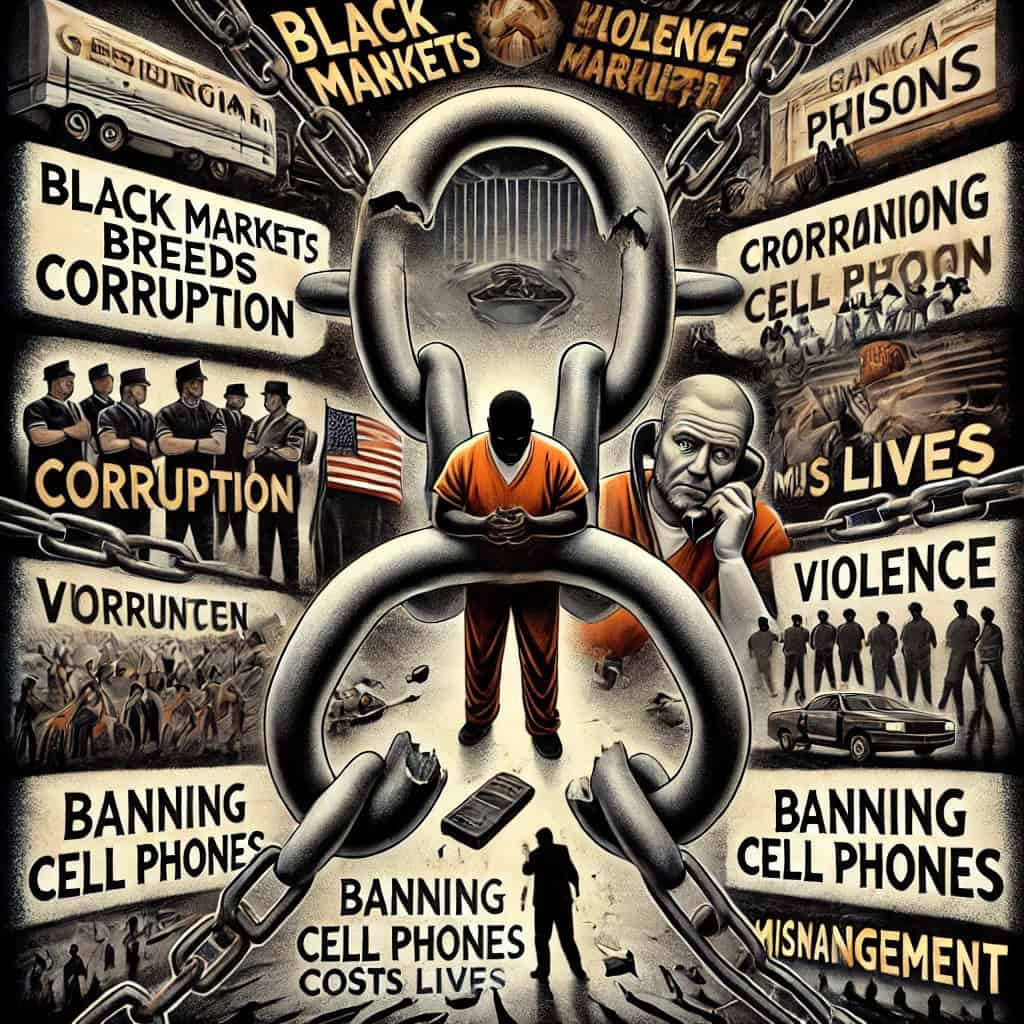
The Broader Impact of Prohibition in Georgia Prisons
The prohibition of cell phones and tobacco in Georgia prisons has resulted in:
1. Thriving Black Markets: Contraband bans create lucrative underground economies, enriching corrupt staff and administrators.
2. Increased Violence: Competition for control over contraband markets fuels violence among inmates and staff.
3. Systemic Corruption: Over 360 prison employees have been arrested for smuggling contraband since 2018, showing how deeply prohibition incentivizes corruption.
4. Failed Reform: Funding for enforcement technologies, like jammers and scanners, has not addressed the root causes of contraband smuggling, leaving prisons in chaos.
A Misguided Narrative
The GDC’s portrayal of cell phones and tobacco as threats is a calculated effort to obscure its own failings and secure more funding. By learning from the failures of alcohol prohibition, it becomes clear that banning highly desired items only exacerbates the problems it seeks to solve. The real issues are systemic corruption and the lack of transparency, not cell phones or tobacco.
How Cell Phones Save Lives
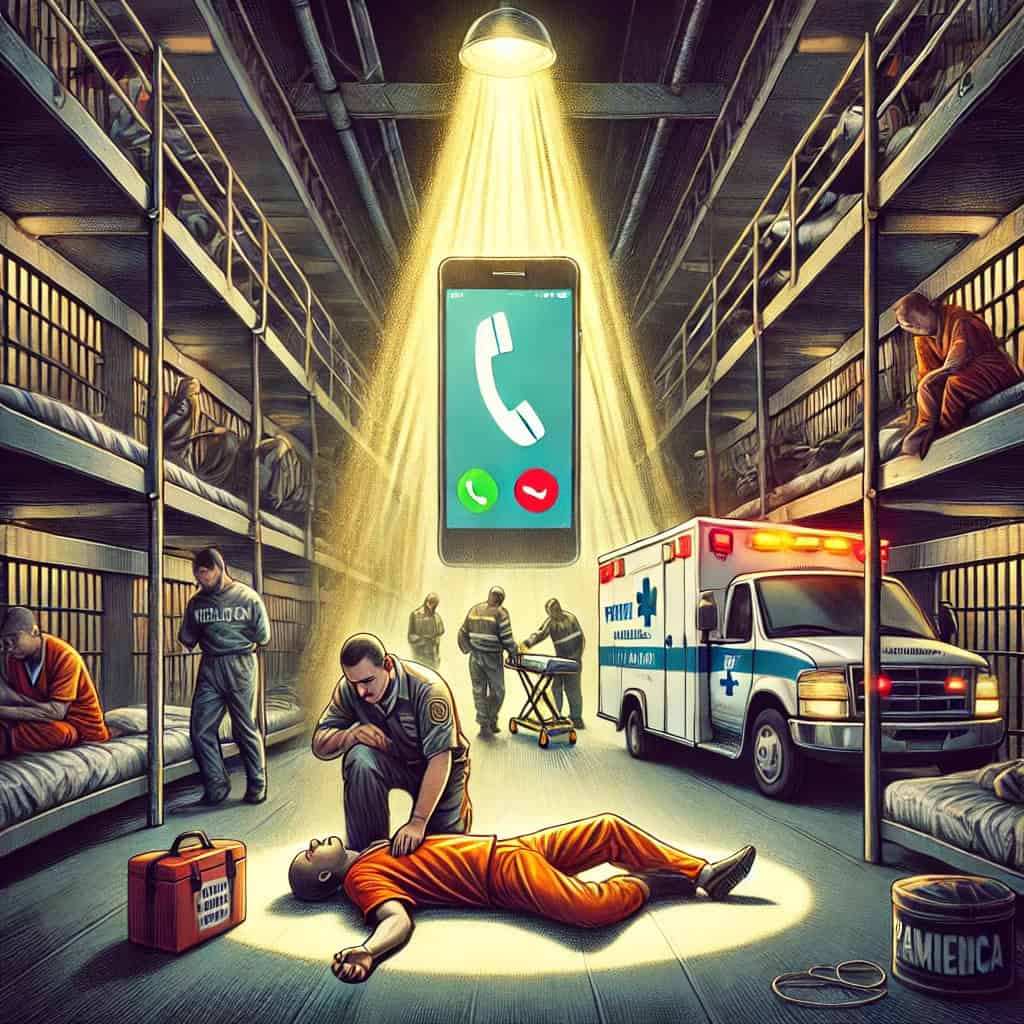
Filling the Gap in a Broken System
Georgia’s prisons are critically understaffed, leaving dorms unsupervised for hours at a time. This lack of staff presence creates a dangerous environment where medical emergencies and violent incidents can go unnoticed for extended periods. While prisons are equipped with officers and communication systems in theory, the reality is that in Georgia prisons, there are no emergency buttons, panic systems, or consistent officer oversight.
In this environment, contraband cell phones have become a vital lifeline. They enable inmates to report emergencies, call for medical help, and even contact 911 when there is no other way to reach staff. Without cell phones, inmates are left to navigate life-threatening situations on their own, often with tragic consequences.
A True Story of a Life Saved
One inmate at Smith State Prison shared a powerful example of how a contraband cell phone saved a life during a medical emergency. However, the decision to use the phone came with serious risks and a profound moral dilemma.
“One Friday evening, I noticed my friend showing clear signs of a stroke: he couldn’t stand straight, leaned heavily to one side, and his speech was slurred. I knew the symptoms, and I knew that time was critical. Every minute mattered, but there were no officers present. We hadn’t seen staff since dinner hours before, which wasn’t unusual given the severe understaffing at Smith.”
The inmate recalled a conversation with Warden Adams, who had previously acknowledged the prison’s dire staffing shortages. “Adams told us that if a real emergency happened, we should use our phones to call the prison office, he even gave us the phone number, and he promised there wouldn’t be any repercussions. But even with that reassurance, I knew there could be consequences.”
The risks weren’t just about the potential for disciplinary action from the administration. Using a contraband phone in such a public way could lead to retaliation from fellow inmates. “If staff decided to do a shakedown after the call and people lost their phones or anything else because of me, there could be serious violence. I’d be labeled as the reason for the shakedown, and in a place like this, that’s not a position you want to be in.”
Despite the danger to himself, the inmate made the call. “I had to do it privately from my room, knowing full well that if anything went wrong—if someone figured out it was me who made the call—there could be dire consequences. But I couldn’t let my friend die. I dialed the prison office and reported his symptoms. Minutes later, paramedics arrived, and he was taken to the hospital.”
The decision proved to be the right one. “When my friend returned weeks later, he told me the doctors said he would have died or suffered permanent brain damage if he hadn’t gotten treatment that night.”
Fortunately, the warden kept his promise, and there were no repercussions for the dorm. “But I’ve seen it go the other way. I’ve seen people retaliated against for doing the right thing. It was a gamble, and I knew it, but I couldn’t just stand by and do nothing.”
This story illustrates the impossible choices inmates are forced to make in Georgia’s prisons. The absence of staff, emergency protocols, or functional systems for reporting crises places the burden of life-and-death decisions on the inmates themselves. Without access to cell phones, many emergencies like this one would end in tragedy.
Preventable Deaths Without Cell Phones
The Smith State Prison example is not unique. Across Georgia, inmates have used contraband phones to save lives:
• Medical Emergencies: Inmates frequently call for help during strokes, seizures, heart attacks, and other emergencies when no staff are present.
• Violence and Assaults: In situations of extreme violence, inmates have used cell phones to notify staff or external authorities when prison officials fail to respond.
Without these tools, countless emergencies would go unreported, resulting in unnecessary deaths. Yet instead of addressing the staffing shortages and broken systems that necessitate this reliance on contraband, the GDC chooses to criminalize the very tool that often saves lives.
A Safer Solution
Rather than banning cell phones, Georgia’s prisons could implement policies that:
1. Allow Responsible Use: Inmates could be permitted to have cell phones for emergency calls, legal research, and family connections.
2. Establish Emergency Protocols: Systems should ensure that inmates can report emergencies directly to staff or external responders without fear of retaliation.
3. Invest in Transparency: Open access to communication would help expose abuse, neglect, and systemic issues, leading to a safer and more accountable prison system.
The Human Cost of Prohibition
By criminalizing cell phones, the GDC is not only perpetuating secrecy but also costing lives. Georgia’s prisons have become death traps where preventable tragedies occur daily. The presence of cell phones—often the only way to get help—provides a stark reminder of the system’s failures. Instead of banning cell phones, the state should focus on creating a system where emergencies can be reported and addressed without contraband.
Benefits of Cell Phones
Justice and Legal Advocacy
For many inmates, cell phones are more than just a means of communication—they are a tool for fighting for justice. Prison libraries often lack up-to-date legal resources, and the assistance provided to inmates through official channels is limited or nonexistent. Cell phones allow inmates to access legal information, research case law, and communicate with attorneys, advocates, and family members who can help them navigate the complexities of the legal system.
This is especially critical for:
1. The Wrongfully Convicted: Cell phones provide a way to uncover evidence or locate witnesses that can support claims of innocence.
2. Overcharged and Over-Sentenced Inmates: Many inmates are not entirely innocent but have been disproportionately punished. Cell phones give them the tools to push for sentence reductions or appeals.
3. Holding the System Accountable: With cell phones, inmates can document inconsistencies in their cases and report misconduct in legal processes.
Without access to cell phones, these avenues for justice are cut off, leaving many inmates with no means to fight for their rights.
Rehabilitation and Modern Technology
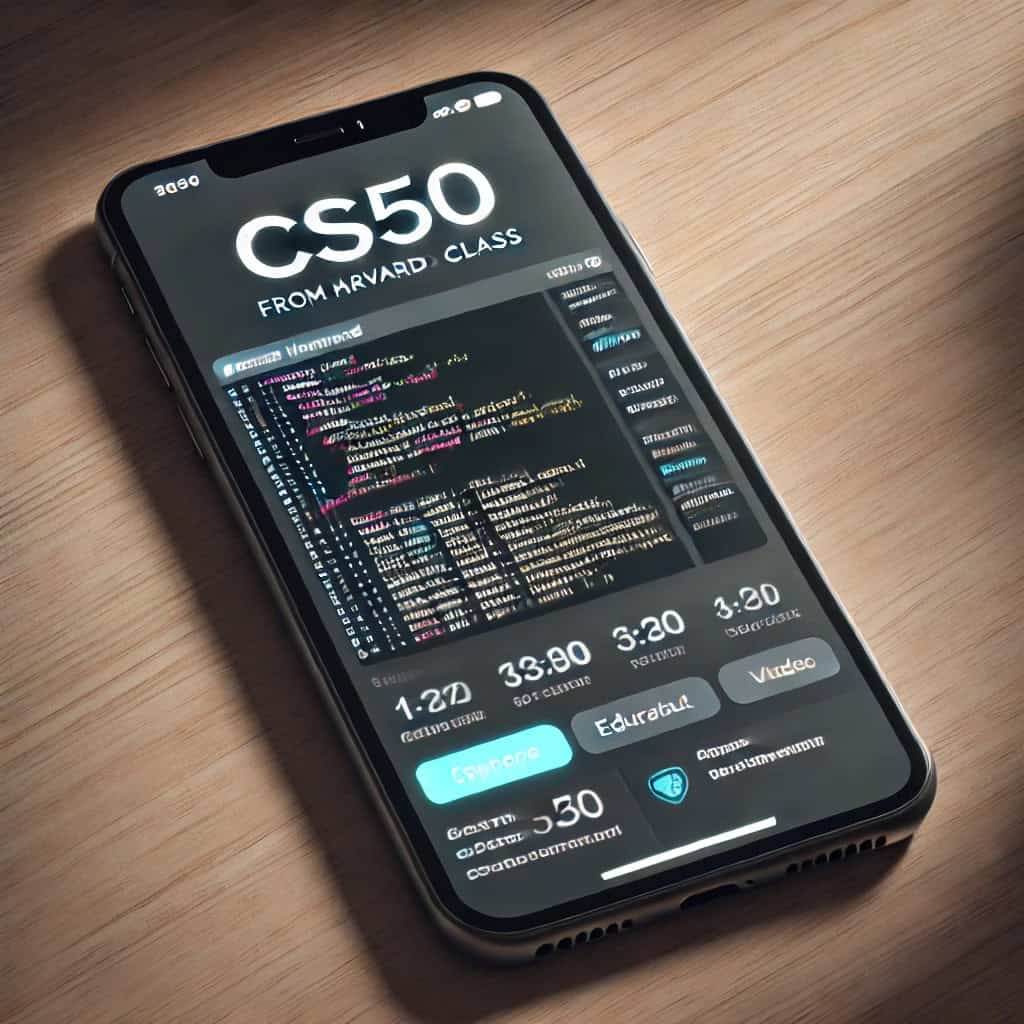
Rehabilitation is a core mission of the prison system—or at least, it should be. In today’s world, technological literacy is a key factor in reintegration. Cell phones and modern technologies are deeply embeddedin almost every aspect of daily life, from job applications to education and communication. Yet, Georgia prisons have taken a step backward in preparing inmates for the modern world.
1. Lost Opportunities with the Tablet Program:
In 2016, Georgia prisons introduced a tablet program, allowing inmates limited access to educational materials and communication tools. However, this program was later terminated leaving inmates with even fewer opportunities to stay connected to technological advancements.
2. The Need for Technological Literacy:
Emerging technologies like artificial intelligence (AI), mobile applications, and digital tools are shaping the global economy. Inmates who are denied exposure to these tools during their incarceration will face significant challenges upon release. Falling behind in technological literacy only increases the likelihood of recidivism.
Prisoners Pursuing Education with Cell Phones
In a remarkable example of self-improvement, a group of incarcerated individuals within the Georgia Department of Corrections has been using contraband cell phones to pursue advanced education. One inmate described leading a group of nearly 300 prisoners, spanning multiple states, in studying Harvard’s renowned CS50: Introduction to Computer Science course.
The course, designed by Harvard professor David Malan, is freely available online and has become a cornerstone for this group’s efforts to learn computer science. “Harvard’s materials are the best, and that professor—David Malan—is amazing,” the inmate shared in a report. Participants use their phones to download course videos and assignments, forming a supportive network to discuss concepts and troubleshoot challenges.
Malan himself has received thank-you notes from incarcerated students over the years. “We have such admiration for students who are trying to acquire new knowledge and skills on their own, ever more so in circumstances like those,” Malan said.
This initiative is more than an educational endeavor—it is a lifeline for inmates seeking to build a better future. With Georgia prisons failing to provide adequate access to education, inmates have taken matters into their own hands, risking punishment to better themselves. As one participant noted, “This is the only way we can do things to better ourselves because they damn sure don’t offer that stuff here.”
3. The Importance of Unrestricted Cell Phone Access:

Allowing inmates to use cell phones without undue restrictions would help bridge the gap between incarceration and reintegration. These devices can empower inmates to:
• Develop essential skills for navigating the modern workforce.
• Stay informed about changes in technology and society.
• Foster stronger connections with their families and support networks, reducing the likelihood of reoffending.
Transparency and Accountability
Cell phones have become a powerful tool for exposing the realities of life inside Georgia’s prisons. Inmates use these devices to document and report abuses, unsafe conditions, and systemic failures that would otherwise remain hidden from public view. Examples include:
• Videos and Photographs: Inmates have shared footage of overcrowded dorms, unsanitary living conditions, and acts of violence, bringing public awareness to the crises within Georgia’s correctional facilities.
• Communicating with Advocacy Groups: Cell phones enable inmates to reach out to journalists, human rights organizations, and advocacy groups, amplifying their voices and shedding light on systemic injustices.
• Holding the GDC Accountable: By providing a direct line to the outside world, cell phones bypass the layers of secrecy that protect the Georgia Department of Corrections from scrutiny.
Georgia Prison System’s Campaign of Misinformation
Reports from investigative journalists and federal authorities have exposed the Georgia Department of Corrections (GDC) for actively clamping down on transparency and engaging in deceptive practices to control the narrative around prison conditions.

1. Suppression of Information:
• Since 2021, the GDC has stopped issuing news releases about deaths under investigation, including homicides. This was a routine practice before, but now, the public often only learns of these deaths through leaks or persistent Open Records Act requests .
• The GDC heavily redacts incident reports, often blacking out entire pages to obscure details about prison violence, escapes, and other critical issues .
2. Misleading Statements to Investigators and Courts:
• A federal judge issued a contempt order against the GDC in 2023 after discovering falsified records and false testimony regarding compliance with a settlement agreement on conditions at the Special Management Unit. In one glaring example, GDC records showed a deceased inmate participating in required “table time” activities days after his death .
3. Obstructing Federal Investigations:
• During the Department of Justice’s investigation into Georgia prisons, the GDC delayed providing critical records and attempted to restrict investigators’ access. The DOJ described the investigation as “unnecessarily contentious” due to the GDC’s obstruction .
4. Framing Criticism as Propaganda:
• In response to rising public scrutiny, GDC Commissioner Tyrone Oliver labeled critical news coverage as “propaganda,” including reports highlighting record homicides and systemic failures. Oliver also defended withholding cause-of-death information in mortality reports, claiming it was to ensure accuracy—a claim contradicted by a lack of subsequent transparency .
5. Data Manipulation and Redactions:
• Incident reports obtained by journalists often show discrepancies or omissions that downplay violence and unrest. For example, a riot at Ware State Prison in 2020 was officially described as a “disturbance,” despite internal reports documenting hostages, weapons use, and extensive property damage .
6. Failure to Notify Families:
• Families of deceased inmates frequently report delays or a complete lack of communication from the GDC regarding their loved ones’ deaths, further demonstrating the agency’s disregard for transparency .
The GDC’s prohibition of cell phones is not about security—it’s about suppressing transparency. If inmates were allowed to use phones openly, the public would have a clearer picture of the system’s failures, creating pressure for meaningful reforms.
The Reality of Cell Phones in Georgia Prisons
Despite the GDC’s ban, there are already well over 20,000 cell phones in Georgia prisons today. This highlights the demand for these devices and the failure of prohibition to eliminate them. Legalizing cell phones would not only reflect this reality but also make it easier for law enforcement to address crimes committed using these devices:
• Improved Investigations: When cell phones are illegal, their use is hidden, making investigations more challenging. If cell phones were legal and openly tracked, law enforcement could more easily monitor calls, trace IP addresses, and identify misuse.
• A Safer Environment: Allowing legal access to cell phones would reduce the demand for contraband, undercutting the black market and decreasing the violence and corruption associated with smuggling.
By recognizing the presence of cell phones as a fact rather than a problem, Georgia’s prison system could shift its focus from costly and ineffective enforcement to addressing the root causes of contraband smuggling, like corruption and understaffing.
A Realistic Approach: Treat Cell Phones as Part of Normal Life

Instead of treating cell phones as contraband, Georgia’s prisons could integrate them into daily life, with no additional restrictions beyond what exists in the outside world. Crimes committed with cell phones—such as scams or threats—can and should be addressed through regular policing methods. In many ways, investigating crimes in prison is easier than in the free world because inmates are confined to a single location.
• No Need for Excessive Monitoring: Control over cell phone use would only give the GDC another means of hiding abuses and controlling narratives. Allowing unrestricted access removes this power imbalance.
• Standard Accountability: If an inmate commits a crime using a phone, normal law enforcement practices—such as IP tracing or call tracking—can identify the perpetrator. The prison environment actually makes this process more straightforward since the individual cannot flee the jurisdiction.
By treating cell phones as part of normal life, prisons can shift their focus from unnecessary restrictions to addressing systemic issues like understaffing, corruption, and violence.
Addressing Public Concerns About Cell Phones in Prisons
Public fears about cell phones in prisons often stem from worst-case scenarios, such as criminal activity, security breaches, or institutional disruption. However, these concerns do not hold up under scrutiny, particularly when considering the reality that over 20,000 cell phones are already inside Georgia prisons. Instead of perpetuating prohibition, it’s time to address these concerns with practical solutions grounded in reality.
1. Criminal Activity
Critics argue that inmates could use cell phones to commit crimes such as scams, drug trafficking, or harassment. While this is a valid concern, it’s important to recognize that these activities are already happening despite the prohibition on cell phones. Blanket bans do nothing to stop misuse; instead, they create black markets that fuel corruption and violence.
A better approach is to hold individuals accountable for their actions. If an inmate uses a phone to commit fraud, for example, they could lose their phone privileges—just as a person in the free world might face restrictions or penalties for similar behavior. Punishments should target individual offenders rather than impose group restrictions that punish everyone.
2. Security Threats
Another fear is that cell phones enable inmates to bypass monitoring systems, plan escapes, or incite violence. Yet, with over 20,000 phones already in Georgia prisons, such threats have not materialized on a scale that justifies this concern. If cell phones were genuinely undermining prison security, we would already see widespread evidence of escapes or organized violence facilitated by phones.
Instead of banning phones, integrating them into normal use would make monitoring easier and reduce risks associated with secrecy. Regular policing methods can address any legitimate threats without resorting to costly and ineffective bans.
3. The Contraband Economy
One of the most significant concerns about cell phones is their role in fueling black markets, which lead to violence and corruption among staff and inmates. This concern is valid—but it’s a direct result of prohibition. When items like cell phones and tobacco are banned, their scarcity drives demand, creating lucrative opportunities for smuggling and bribery.
The solution is simple: eliminate the black market by making these items legal. If cell phones and tobacco were no longer contraband, the incentive for corruption would largely disappear, and violence associated with contraband trade would significantly decline.
4. Loss of Institutional Control
Some fear that allowing unrestricted communication would weaken the authority of prison officials. However, this fear is misplaced, as the abundance of cell phones already in use has not led to widespread loss of control. In fact, allowing inmates to communicate freely could foster a safer and more transparent environment, reducing tensions caused by isolation and secrecy.
5. Misuse for Propaganda
Critics worry that inmates could use cell phones to document or exaggerate conditions in prisons, potentially misleading the public. However, transparency is not a threat—it is a necessity. If inmates are documenting unsafe or unsanitary conditions, the focus should be on addressing those issues, not suppressing the evidence. Public awareness is a powerful tool for reform, and fears of “propaganda” should not outweigh the need for accountability.
6. Increased Danger to Staff
While some worry that cell phones could be used to target or undermine staff, this possibility exists with or without phones. Inmates have always found ways to communicate and organize within prisons. Rather than blaming cell phones, efforts should focus on fostering a safer environment through better staffing, training, and oversight.
7. Resource Strain
Another concern is that responding to cell phone misuse could overwhelm already strained prison resources. However, legalization could actually reduce strain by eliminating the need for expensive enforcement technologies like jammers and contraband sweeps. Additionally, legal phones could simplify investigations by allowing law enforcement to trace calls, IP addresses, and phone activity more easily.
8. Technology Vulnerabilities
Fears about hacking or other technological risks are largely unfounded. Hacking with a cell phone is far more difficult than with a computer, and most devices used in prisons are basic models without advanced capabilities. Furthermore, the presence of over 20,000 phones in Georgia prisons has not led to significant technological threats.
Reality-Based Solutions
Instead of allowing these concerns to justify prohibition, Georgia’s prison system should embrace practical reforms:
1. Treat Cell Phones as Legal Items: Allowing inmates unrestricted access to phones would eliminate the black market and reduce associated violence and corruption.
2. Focus on Accountability: Address crimes committed with cell phones on an individual basis, just as law enforcement does outside of prison.
3. Invest in Transparency: Legal phones can expose abuses and systemic failures, fostering a safer and more accountable system.
By addressing these concerns with logic and practicality, Georgia’s prisons can shift from ineffective prohibition to a system that prioritizes safety, transparency, and accountability.
Call to Action
Educate the Public
The Georgia Department of Corrections (GDC) has relied on propaganda to shape public opinion, portraying cell phones in prisons as a dangerous problem requiring costly solutions. But the reality is far different. With over 20,000 phones already in use, prohibition has done little to improve security. Instead, it has fueled black markets, corruption, and violence while denying inmates a vital tool for survival, justice, and rehabilitation.
It’s time for the public to question the GDC’s motives and the effectiveness of its policies. Taxpayer dollars continue to be funneled into ineffective and expensive technologies, while the real issues—staffing shortages, systemic corruption, and unsafe conditions—remain unaddressed.
Support Prison Reform
Cell phone prohibition is not just an isolated policy failure—it is part of a broader pattern of neglect and mismanagement within Georgia’s prison system. True reform starts with acknowledging the reality of the situation:
• Cell phones save lives in emergencies when no staff are present.
• They empower inmates to fight for justice, maintain family connections, and prepare for reintegration.
• They shine a light on the systemic abuses and failures that the GDC would rather keep hidden.
Reforming the system to allow unrestricted use of cell phones would:
1. Eliminate the black market for contraband phones, reducing corruption and violence.
2. Foster transparency by exposing the realities of prison conditions.
3. Empower inmates to build the skills and connections needed for a successful return to society.
Demand Accountability
Taxpayers have a right to demand transparency and accountability from the GDC. Instead of approving more funding for cell phone detection technologies and contraband enforcement, the public should insist that resources be allocated to:
• Addressing understaffing and unsafe conditions.
• Reducing corruption by holding prison staff accountable for smuggling contraband.
• Ensuring humane treatment and opportunities for rehabilitation.
Push for Change
Policymakers and lawmakers must stop perpetuating fear-driven narratives about cell phones in prisons. Instead, they should focus on real solutions that prioritize:
• Transparency: Encourage open communication to expose abuses and failures.
• Safety: Address the root causes of violence and corruption, rather than blaming cell phones.
• Rehabilitation: Equip inmates with the tools they need to succeed upon release, including technological literacy.
The time for change is now. Georgia’s prison system can no longer afford to waste resources on ineffective policies that perpetuate harm. It’s time to reject prohibition and embrace a reality-based approach that values life, justice, and accountability.
Conclusion
Cell phones in prisons are not the threat the GDC would have the public believe. They are lifelines in emergencies, tools for justice, and a means of transparency. Prohibition has failed to eliminate cell phones—it has only exacerbated the issues it was meant to solve. By legalizing cell phones and addressing the real problems within the prison system, Georgia can move toward a system that prioritizes safety, fairness, and humanity.
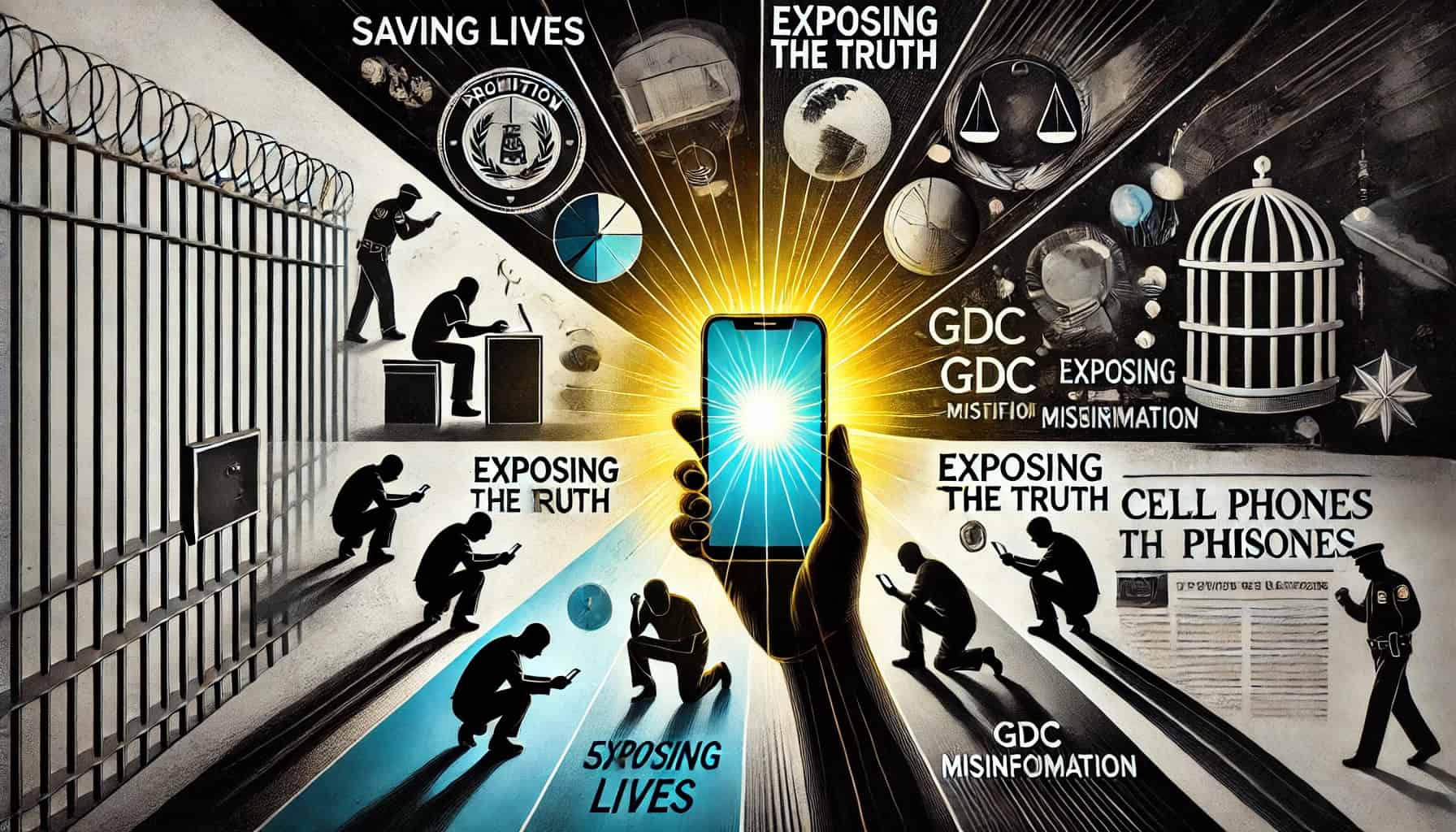
Great article
Cell phones should be allowed for inmates
If they use a cell phone to commit crimes then punishment should be given
The prison brass don’t want to be caught on video mistreating inmates
It also cuts into the profits for corrupt guards and wardens
Yes legalize the cell phone use in Georgia prisons when they had the tablets things were much better less violence now allow them to use the cell phones and things will calm down there will be less violence because the inmates will be too busy on their cell phones with their friends and family researching their legal issues or watching movies or listening to music or whatever time consuming entertainment that the cell phones will provide the inmates need a outlet to reach out to family and friends besides the prison phones they are expensive calls and a lot of people cannot afford them
Yes legalize the cell phone use in Georgia prisons when they had the tablets things were much better less violence now allow them to use the cell phones and things will calm down there will be less violence because the inmates will be too busy on their cell phones with their friends and family researching their legal issues or watching movies or listening to music or whatever time consuming entertainment that the cell phones will provide the inmates need a outlet to reach out to family and friends besides the prison phones they are expensive calls and a lot of people cannot afford them